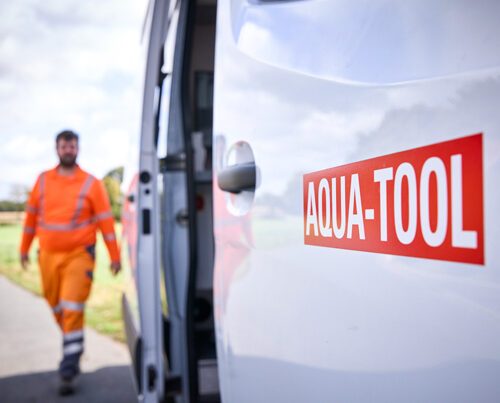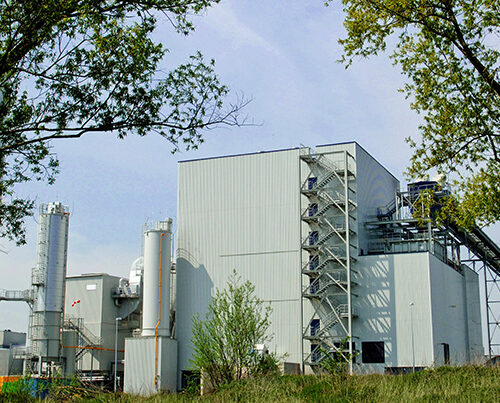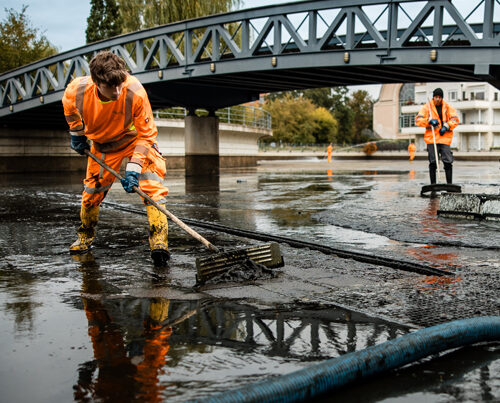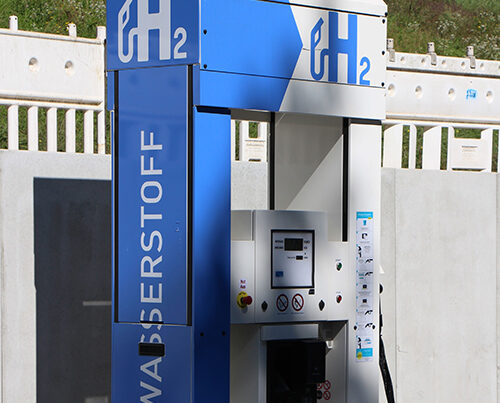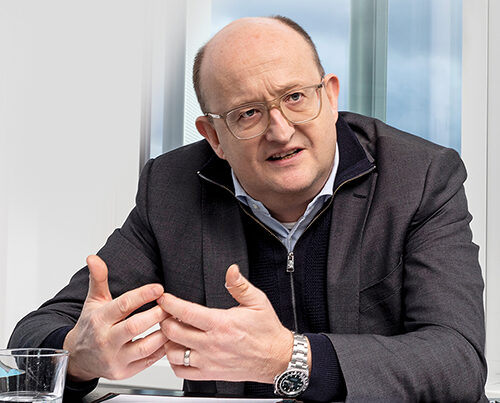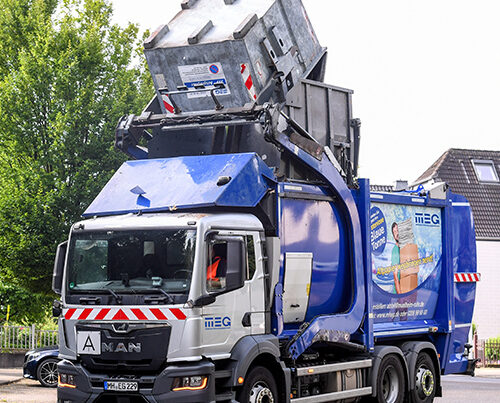Focusing on services
There has been an atmosphere of change at the metal recycling specialists, TSR, since it became a fully owned subsidiary of the REMONDIS Group in September 2017. One consequence of this full takeover has been the relocation of TSR’s head office from Bottrop to Lünen (where REMONDIS is based), which was completed in the summer of 2017. Moreover, Jürgen Mauthe has joined TSR’s team of managing directors and is respon-sible for further dovetailing the TSR and REMONDIS operations. Structural changes are often accompanied by a change in strategy and this is certainly true here – TSR is no longer simply a trading firm but also a service-oriented recycling business as well.
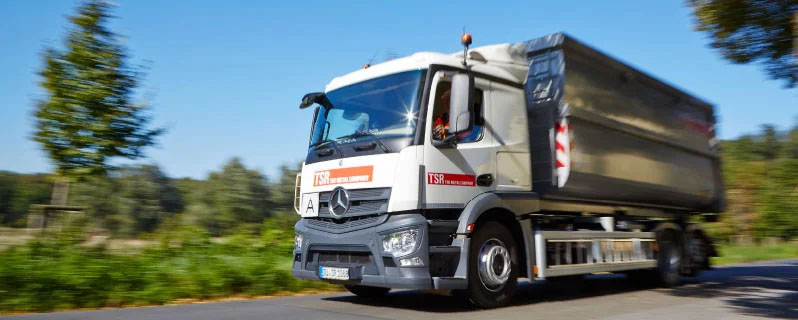
Complex challenges
Recycled raw materials are becoming more and more important as our planet’s natural resources become increasingly scarce and sustainable development plays an ever greater role in the worlds of politics and business. Industrial businesses, however, often opt to use primary raw materials despite the fact that mining has a hugely negative impact on our environment and far more energy must be consumed to process these materials. “Many end-of-life products consist of a highly complex mixture of materials. The recycling sector faces the difficult task of recovering these raw materials and then separating them from each other so that as many components as possible can be recycled and reused,” explained Bernd Fleschenberg, managing director of TSR.
Thinking about recycling from the very start
To be able to fully close these product life cycles, it is essential to remain in close contact with metal processors. “We can only offer appropriate recycling solutions if we really understand how products are made and exactly what materials are needed,” Bernd Fleschenberg continued. What’s more, discussions need to be held with businesses to talk about the recyclability of their products as there are limits as to what can be achieved both from a technical and economic point of view. Bernd Fleschenberg stressed: “As far as we are concerned, recycling begins with product development.” Recycling ferrous and non-ferrous metals in a country such as Germany, which has so few natural resources of its own, is not only important because it helps cut carbon emissions, it also makes us less dependent on the countries supplying primary raw materials.
“We can only offer appropriate recycling solutions if we really understand how products are made and exactly what materials are needed.”
Bernd Fleschenberg, Managing Director at TSR
Collecting scrap straight from the source
TSR has built up three core areas of expertise – trading, services and recycling – and will be using these to further cement its position as a reliable partner for industrial sectors and a supplier of high-quality recycled raw materials. “We are increasingly becoming a service-based recycling company,” explained Bernd Fleschenberg. “By offering industry-specific services, we will be able to collect scrap metal straight from the source, transport it to our facilities and process it using our own technology so that it can be returned to the production sector as a recycled raw material.”
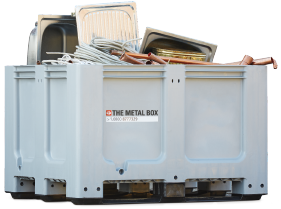
Bespoke collection schemes, such as the METAL BOX, help grow collection and recycling rates
All services from just one company
No matter what solution TSR may offer, it is always focused on its customers’ requirements. “Industrial firms need services that have been adapted to suit their production systems so that they can concentrate on their core business,” said Olaf Pusch, head of key account management & services, explaining the company’s ‘industrial consulting’ concept. “We take a look at all of the material streams generated throughout the whole of a business’ production chain. We can then optimise in-house processes by thinking about possible recycling solutions for the start of the production process as well,” Olaf Pusch continued, describing how their concept works. Since REMONDIS’ takeover of TSR, there has been a concerted effort to further strengthen the collaboration work between the two companies and this is already paying off: “By working together with our REMONDIS colleagues, we can offer our customers waste management concepts that cover all of their waste streams which also helps us stand out from the competition,” said Olaf Pusch.
Looking at new target groups
A further service that has been offered by TSR’s Dortmund business since 2015 is its ‘METAL BOX’. This small container was designed especially for small firms and workshops so that they have a practical place to store their ferrous and non-ferrous scrap. This is then collected and exchanged for an empty one either on a regular basis or when the customer calls. “This service is proving to be very popular indeed. In fact, it is now available in practically all of TSR’s regions,” commented Christian Blackert, the regional manager in charge of the project.
THE METAL BOX – the easy way for you to store your business’ scrap metal the-metal-box.eu (German only)
Since adjusting its business strategy, TSR has begun looking at target groups that have played little or no role in the past: TSR’s latest service, ‘THE METAL POST’, is targeted at private individuals who can now use an online platform to send their old metal to TSR. Customers can print out a delivery note and then send their metal to TSR as a standard parcel. “Once the contents have been examined, a transparent overview of the metals is sent to the customer and they then receive payment for their metals according to the daily scrap metal prices,” said Olaf Pusch explaining the project which is to be managed in Hamburg and is due to start at the end of 2017.
THE METAL POST: make the most of your scrap metal – don’t throw it in the bin! the-metal-post.eu (German only)
Ready for the future
Besides offering its own portfolio of services, those working at TSR believe there are a huge number of potential business opportunities from collaborating with the other REMONDIS companies. “One project currently being discussed clearly demonstrates how close cooperation between two REMONDIS firms can cut logistics costs and workloads,” said Bernd Fleschenberg. At the moment, REMONDIS Electrorecycling’s various dismantling centres remove all pollutants from white goods so that they can be sent on to TSR for recycling. The companies are now looking into the possibility of removing such pollutants on site at TSR’s shredding facilities.
No matter whether it involves talking with industrial businesses, its new portfolio of services or its closer collaboration with REMONDIS: TSR is well prepared for the upcoming changes in its sector. It has set the course for its future so that it can successfully master the international challenges of its volatile market and help shape future developments as the metal division of the REMONDIS Group. Bernd Fleschenberg summed this up saying, “We are simply making sure that we are ready for the future”.
Image credits: © REMONDIS







